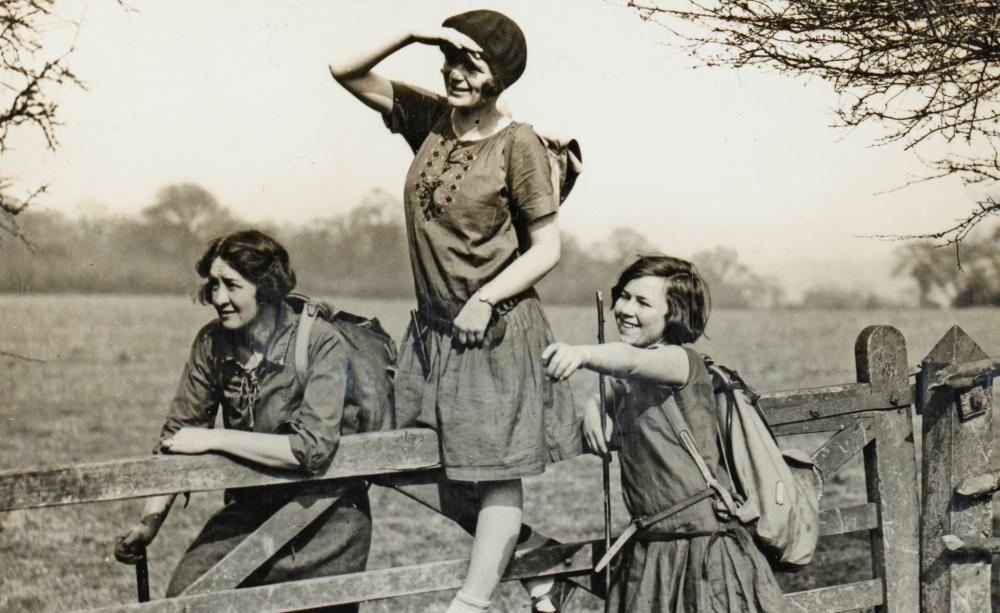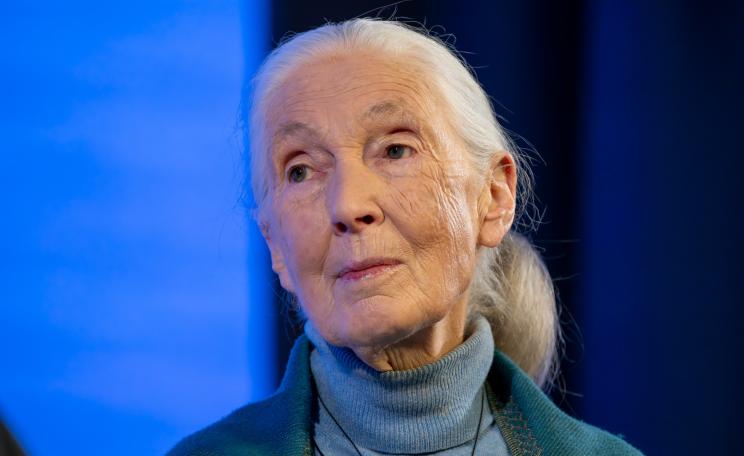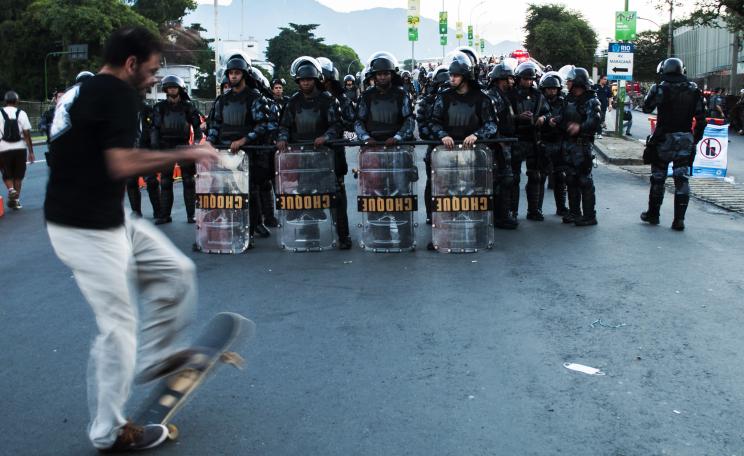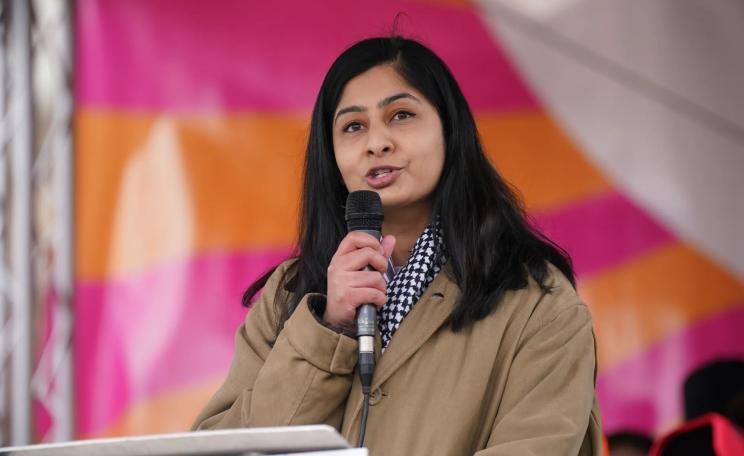We are a movement seeking social change. We are training children from a new world.
Woodcraft Folk has been at the heart of environmentally and politically-engaged British youth work for decades. And now the oldest co-educational youth movement in the country is turning a hundred.
They were the largest secular supporters of the Kindertransport and stood up for the rights of queer youth workers even as homophobic funders withdrew grants.
Their child members have campaigned for rights of refugees and asylum seekers, and against the invasion of Iraq.
Vandals
Their founding focus on sustainability, youth empowerment, and inclusive mixed sex education have set a precedent that many larger children's organizations now emulate.
The history of Woodcraft Folk starts with vandalism. In 1902 the home of South Shields-born naturalist Ernest Thomson Seton, was damaged by local schoolchildren.
Realising the vandals were not malicious but simply bored, Seton set up a youth club to better occupy their time based around wilderness survival skills and the appreciation of nature — a synthesis he christened “woodcraft”.
Inspired by Seton’s club, Lieutenant-General Robert Baden-Powell, launched a boys-only version mixing in Christian and military ideas from his time in the Boer War.
Scouts grew phenomenally. But following the horrors of the first world war many became uneasy with its overt links to the army and broke away to establish less militaristic alternatives — including Woodcraft Folk.
Formative
The first group began meeting in 1925 in South London. From day one the embryonic charity was very different to its establishment predecessor: co-educational, democratic, internationalist, eco-conscious and alert to the deep inequalities then facing inner city children.
Co-founder Leslie Paul set out the organisation’s tactic of taking working class children into nature to pitch big camps run along co-operative principles — in his 1938 book The Republic of Children.
The idea was to model a more sustainable and equal society, equipping young people with the skills and knowledge to become active citizens. “We are a movement seeking social change” Paul wrote. “We are training children from a new world.”
As the organisation grew it produced some remarkable alumni. Former Labour Party leader Jeremy Corbyn, ITV political editor Robert Peston, pop singer Sophie Ellis-Bextor and poet Michael Rosen all spent formative years in Woodcraft Folk.
We are a movement seeking social change. We are training children from a new world.
Lloyd Russell-Moyle, the former MP for Brighton Kemptown, started attending his local group aged six. Three decades later, having spent seven years in parliament, he has now been appointed chief executive of the charity he grew up in.
Responsibilities
“It guided my most formative work” he tells me “I went into politics because of Woodcraft Folk.”
For Russell-Moyle the organisation’s genius is its unflinching belief in the capacity of young people to handle meaningful responsibilities and risks that they are often deemed incapable of elsewhere.
“I would almost describe what society is doing to our children as abuse,” he says, arguing that the endemic removal of risk from children’s lives has been “an absolute disaster”.
For Russell-Moyle, taking risks with the support of adults is how we grow. When children are overly protected, they cannot build the skills or resilience needed to learn from failure leading to crises in mental health and loneliness.
Woodcraft Folk “embraces risk without being reckless” he says, supporting children to tackle complex responsibilities from serving on its national governing body (the charity frequently has the youngest trustee board in the country), to navigating a mountain, to helping stage major events.
Solar-powered
This month Woodcraft Folk has been marking its centenary with an international camp bringing hundreds of children from across the UK together with international delegations from Peru, Senegal, Nicaragua, Ghana and beyond.
The programme is packed, with volunteer youth workers delivering a diverse array of activities.
Big ethical questions gently run throughout. Own pellet dissection workshops teach children about local species changes alongside discussions on prison abolition.
A solar-powered cinema faces an on-site printing press producing a daily newspaper, an article in which highlights the detrimental effects of austerity on children’s height.
Disenfranchised
A delegation from Western Sahara demonstrates a traditional Saharawi tea ceremony and discusses their experience of living under occupation.
An eviction resistance workshop playfully teaches children tactics to defend their homes from bailiffs.
“Joy, creativity and play are not separate from our politics. They are central to it” explains Russell-Moyle.
While some adults feel paralysed by the challenge of navigating war, sex and inequality and other knotty subjects with children, finding creative ways to explore complex issues is central to Woodcraft Folk’s pedagogy.
100 years young, Woodcraft Folk is still a national force but times are tough. Like many children’s organisations the pandemic took a severe toll, but Russell-Moyle is optimistic. He sees a whole generation of politically-engaged young adults who feel disenfranchised by Westminster.
Strong
Now cresting their thirties many have kids of their own but don’t know how to effect the change they want to see in the world.
“None of our political parties, alone, are credible in being able to improve communities in the way those communities are crying out for,” he confesses, “but Woodcraft Folk is a way to get involved in politics – not party politics – but to help raise children to be changemakers.”
On the last night of their centenary camp, all participants, over a thousand of them, join hands, and sing an old protest song; its final verse reflects the indomitable spirit of the organisation as it enters its second century .
“All sorrow is banished, we march to the light, link your hands together, we’re strong in our might.”
This Author
Phineas Harper is a regular contributor to The Guardian. They are an innovative leader in developing sustainable cultural programmes that engage broad audiences and their career spans criticism, curation, education, youth work, journalism and sculpture.




